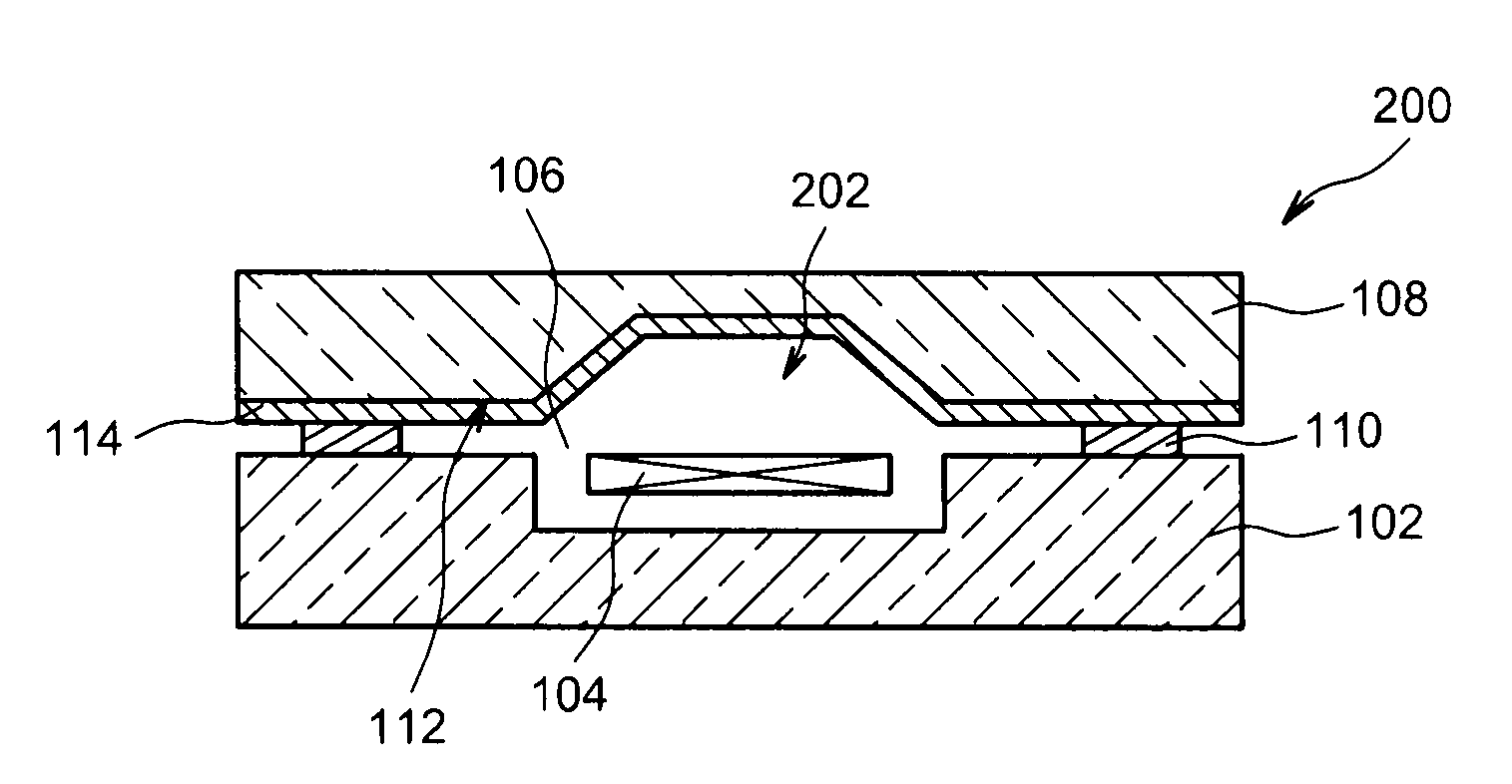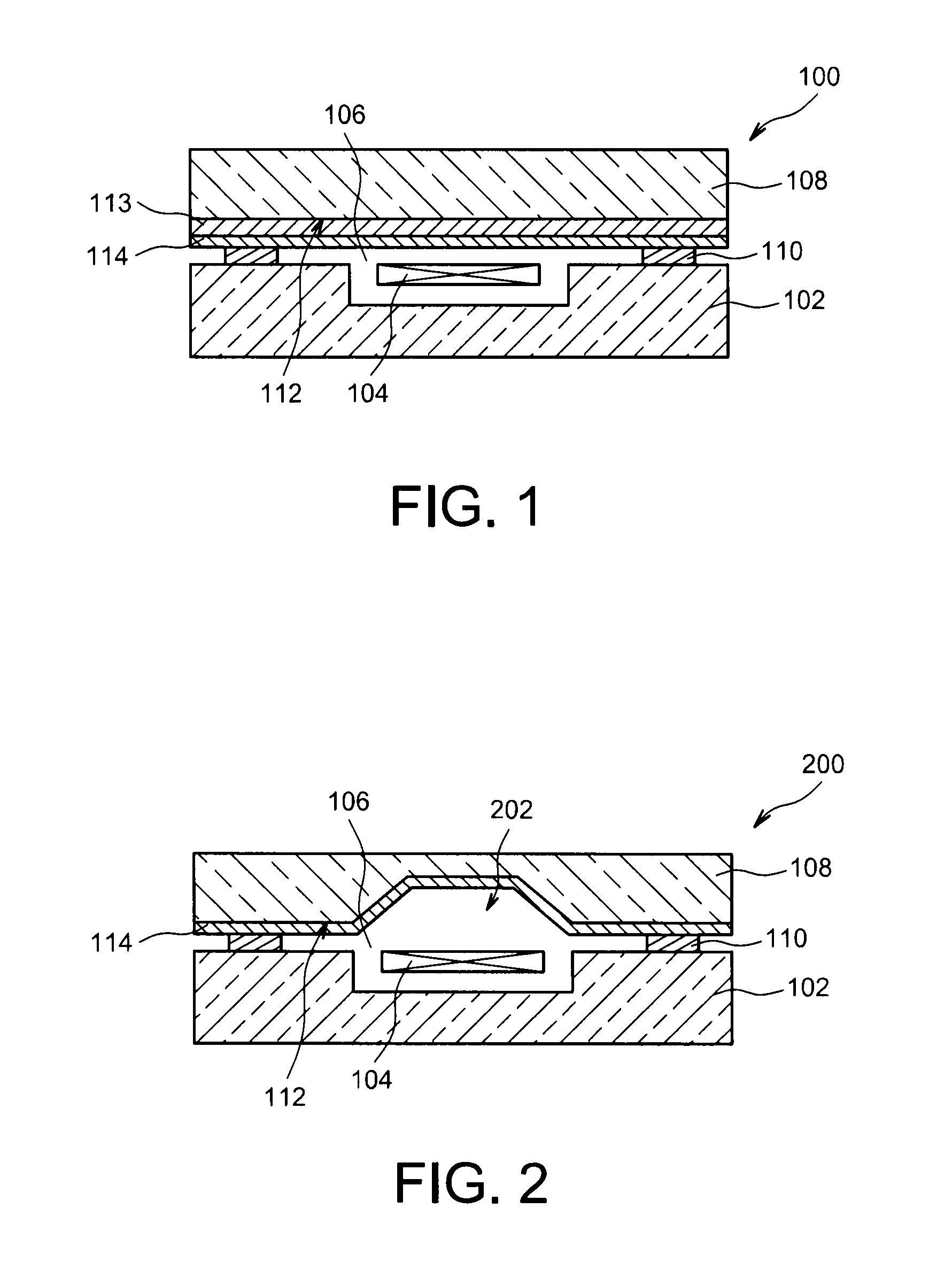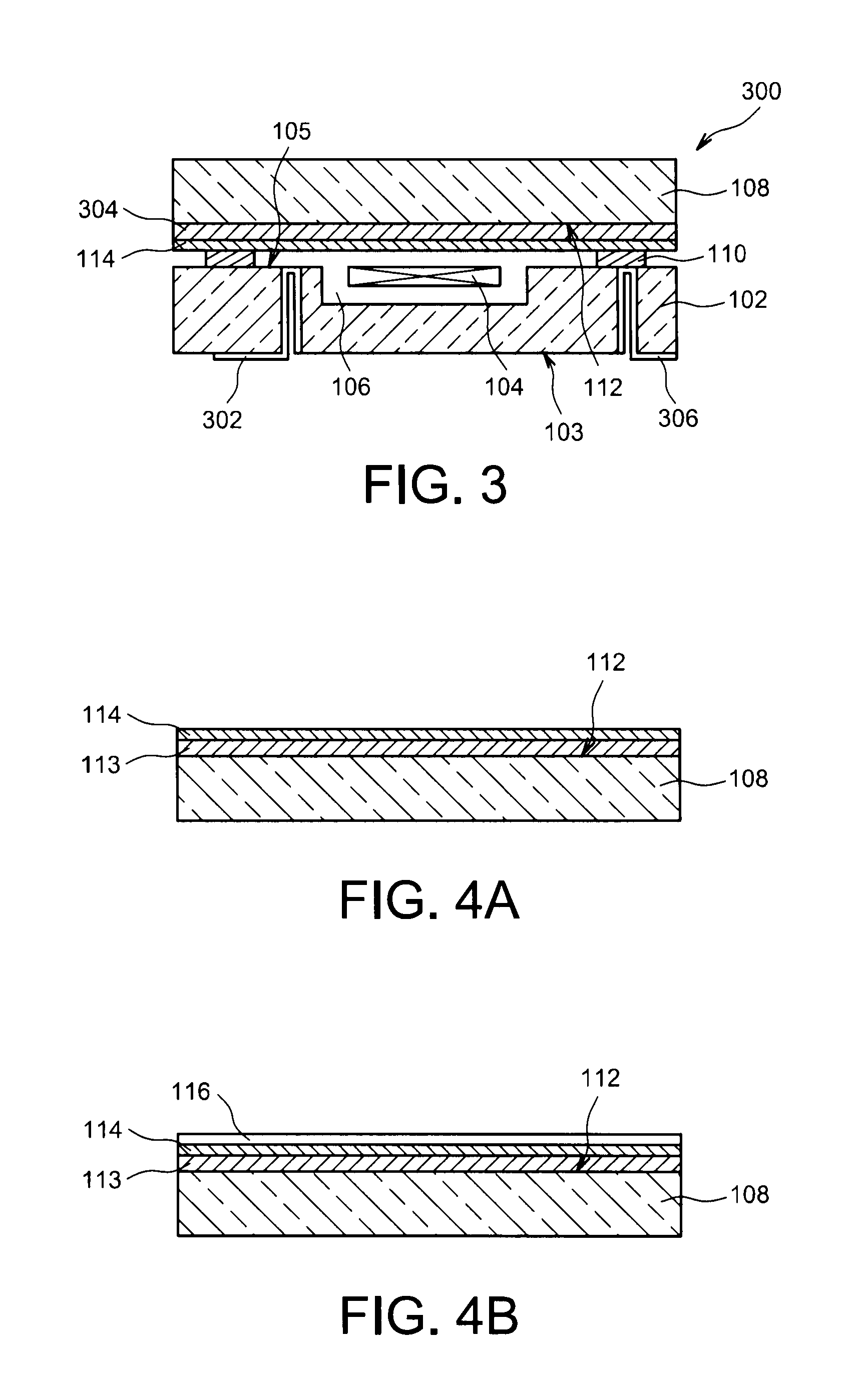Packaging structure of a micro-device including a getter material
a technology of getter material and packaging structure, which is applied in the direction of semiconductor devices, semiconductor/solid-state device details, electrical apparatus, etc., can solve the problems of not being able to use a temperature adjustment sub-layer of the getter material, the implementation of these steps is risky to the getter material, and the packaging structure is not easy to achiev
- Summary
- Abstract
- Description
- Claims
- Application Information
AI Technical Summary
Benefits of technology
Problems solved by technology
Method used
Image
Examples
first embodiment
[0056]FIG. 1 which represents a packaging structure 100 will be referred to.
[0057]The packaging structure 100 includes a first substrate 102, for example comprising a semi-conductor such as silicon, wherein a micro-device 104 is made, for example of the MEMS and / or NEMS type or of the infrared detector type, such as a micro-bolometer. The micro-device 104 is packaged into a cavity 106 formed between the first substrate 102 acting as a support to the micro-device 104, and a second substrate 108, also comprising a semi-conductor such as silicon or glass, and forming a cap. The substrates 102 and 108 are made integral with each other through a bonding interface 110 made as a sealing bead. This sealing bead consists for example of one or more fusible materials.
[0058]An insulating layer 113 comprising for example oxide or nitride when the second substrate 108 includes a semi-conductor or electrically conducting material, is made at a main face 112 of the second substrate 108. This insul...
second embodiment
[0061]FIG. 2 which represents a packaging structure 200 will be referred to.
[0062]Different from the previously described structure 100, a hole, or trough 202 is formed in the second substrate 108, at the main face 112 of the second substrate 108. This trough 202 is formed in a part of the second substrate 108 intended to be provided in the cavity 106. This trough 202 is formed prior to depositing the layer of getter material 114 in order that the whole main face 112 and the walls of the trough 202 are covered with the layer of getter material 114. Moreover, different from the structure 100 according to the first embodiment, the packaging structure 200 does not include an insulating layer provided between the main face 112 of the second substrate 108 and the layer of getter material 114.
[0063]As compared with the first embodiment, such a trough 202 enables to increase the volume of the cavity 106 wherein the micro-device 104 is packaged. This trough 202 is only made through a part ...
third embodiment
[0065]FIG. 3 which represents a packaging structure 300 will be referred to.
[0066]Different from the previously described structure 100, a through via 302 is formed through the first substrate 102, from a back face 103 of the first substrate 102 opposed to a front face 105 of the first substrate 102 at which the micro-device 104 is made. This through via 302 opens into the cavity 106 and is electrically connected to the micro-device 104, thus forming an electrical access to the micro-device 104 from the back face 103 of the first substrate 102. A via 306, electrical connected to the getter material 114 via the bonding interface 110, is made through the first substrate 102, and thus forms an electrical access to the getter material 114 from the back face 103 of the first substrate 102. Other vias, not represented and similar to the via 302 or via 306, may be formed through the first substrate 102. Such a via 302 enables to perform an electrical contact of the micro-device 104 at the...
PUM
| Property | Measurement | Unit |
|---|---|---|
| thickness | aaaaa | aaaaa |
| thickness | aaaaa | aaaaa |
| thickness | aaaaa | aaaaa |
Abstract
Description
Claims
Application Information
 Login to View More
Login to View More - R&D
- Intellectual Property
- Life Sciences
- Materials
- Tech Scout
- Unparalleled Data Quality
- Higher Quality Content
- 60% Fewer Hallucinations
Browse by: Latest US Patents, China's latest patents, Technical Efficacy Thesaurus, Application Domain, Technology Topic, Popular Technical Reports.
© 2025 PatSnap. All rights reserved.Legal|Privacy policy|Modern Slavery Act Transparency Statement|Sitemap|About US| Contact US: help@patsnap.com



